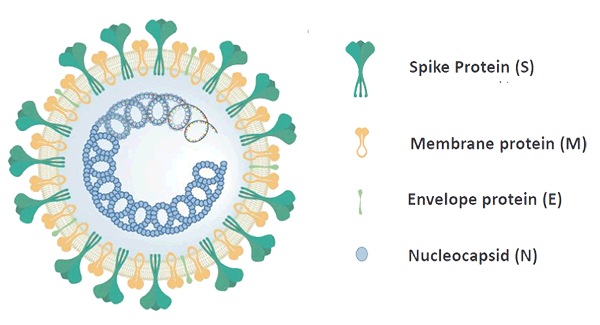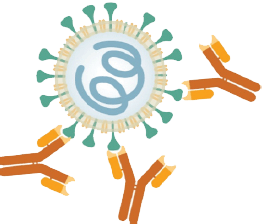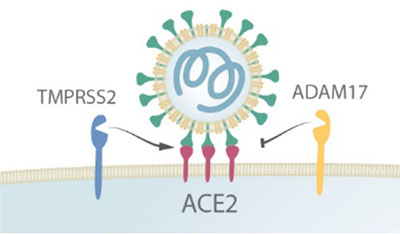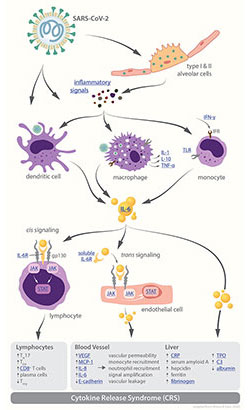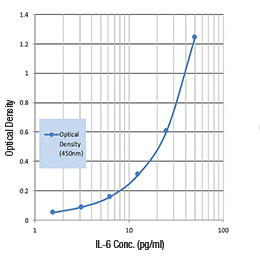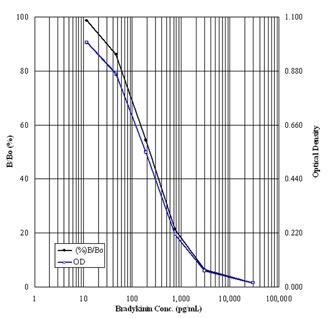Scale up Production
Efficient large scale production of recombinant proteins requires careful handling during isolation and purification. This will prevent protein aggregation and contamination issues that can arise during processing. We offer a variety of products to ensure an effective biotherapeutic scale up production.
Protein Aggregation Monitoring
Our PROTEOSTAT® Protein Aggregation Assay provides a simple, homogenous assay format for monitoring peptide and protein aggregation in solution. This assay offers you a sub-micromolar range sensitivity and will allow you to detect as little as 1-5% protein aggregate in a concentrated protein solution. The assay is capable of providing quantitative analysis of protein aggregation in a robust and high-throughput fashion (Z’ factor score >0.5).
- A simple, sensitive, homogenous fluorescent assay
- Validated for use with microplate or flow cytometry platform
- Extensively benchmarked with IgG
- Optimize buffers and excipients for protein formulation
- Performs with a wide pH and ionic strength range
- Use with PROTEOSTAT Protein Aggregation Standards for accurate quantification of aggregated protein in solution
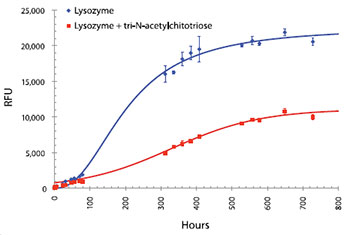
Monitor the ability of an excipient to inhibit protein aggregation. Lysozyme was incubated in the presence or absence of N,N’,N’’-triacetyl-chitotriose (inhibitor of lysozyme aggregation). Aggregation was induced and monitored for several weeks at room temperature.
Protein A Contamination Monitoring
The Protein A ELISA kit is a sensitive and reproducible sandwich assay to quantify Protein A residuals in protein preparations. This extensively validated ELISA kit enables you to efficiently detect natural and recombinant Protein A constructs with up to 100% recovery.
- Detects 1ppm of Protein A residuals in human IgG
- Recognizes 4 different Protein A variants
- Useful for contamination analysis and measurement of Protein A variants in monoclonal antibody preparations
- Produces results in less than 3 hours with low cost per test
Accelerated Protein Stability Assay
The PROTEOSTAT® Thermal Shift Stability Assay is a rapid, simple screening method based on a novel molecular rotor dye which detects protein aggregation. The assay does not require any prior knowledge of protein structure, sequence or ligand binding activity, and is performed on a thermally regulated fluorimeter or RT-PCR instrument.
- Perform accelerated screening for protein stability as a function of pH, ionic strength, and concentration
- Screen for ligand binding to proteins of unknown function
- Screen protein variants to determine their relative stabilities or excipients to determine optimal protein storage conditions
- Identify protein-protein interaction inhibitors
- PROTEOSTAT dye is tolerant of detergents and hydrophobic compounds
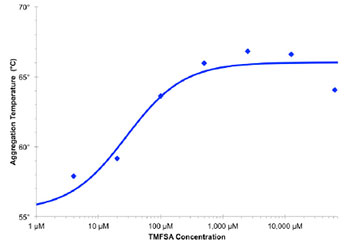
Carbonic anhydrase I (1 μM) was incubated with 0 to 62.5 mM of TFMSA (trifluoromethane sulfonamide) in 25 mM MES, 50 mM NaCl, pH 6.1. The ProteoStat Thermal Shift Stability Assay demonstrates that ligand binding increases protein thermal stability by an amount proportional to the concentration of the ligand.
Complemetary Products for Scale up Production
Please check out our extended
Bioprocess Portfolio.





